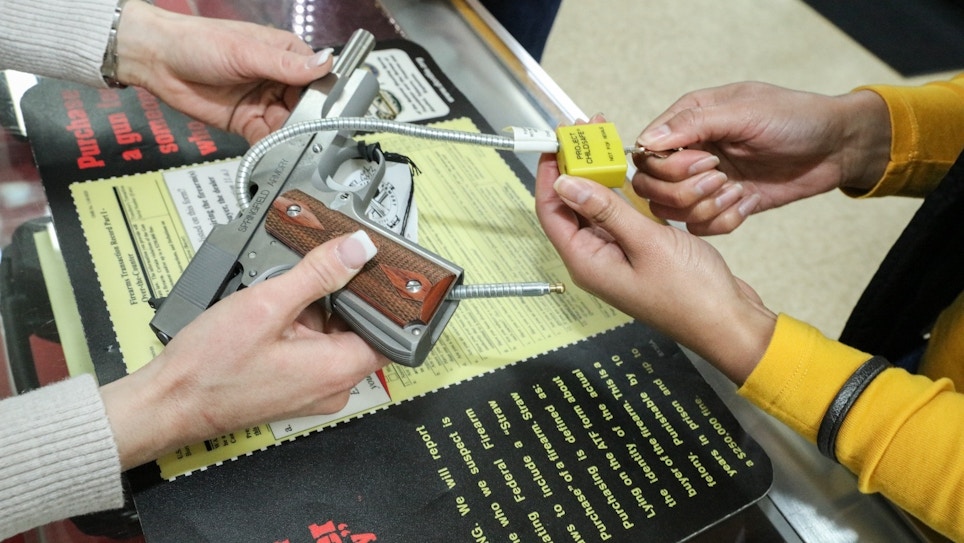Scenario #1: A customer enters your store and says he is visiting from a neighboring state. He saw that you advertised a particular shotgun and he would like to purchase one. The laws in your state allow you to sell a shotgun to anyone over 18; he is 20. Can you legally sell him the firearm?
Scenario #2: A customer enters your store in an Army uniform. He would like to purchase a rifle for hunting. He’s stationed at a nearby military base and has the paperwork to prove it, but he lives two states away. What paperwork must you have to sell him the rifle legally?
These are just two of the uncommon sales that gun retailers may find themselves facing when a customer comes in the door. Other situations that may raise questions include online sales, sales to customers with dual residency (snowbirds), and the effect a customer’s CCW has or does not have on background checks and waiting period requirements.
“If you make a sale, you are presumed to know the law regarding the sale,” said NSSF Compliance Consultant Wally Nelson. “That is written into the Gun Control Act. If you don’t know the law, don’t make the sale.” Nelson said there are a lot of things that can get you in trouble if you don’t do them right.
Online Gun Sales
One thing that happens with online sales in particular, Nelson said, is that firearms are not always identified as to who they are from or who they are for.
“A dealer will call and say ‘I have a gun in a box. What do I do?’” he said. “If you’re a shipper, you’re supposed to get a copy of the license of the dealer you’re shipping to. But sometimes people aren’t even asking for a copy of the license; they’re just sending the gun.” This is against firearm regulations, and it puts the receiving dealer in a difficult position.
“Even if they don’t know where it came from, once they open the box, they have to log it in,” Nelson said. “You just have to put that it came from UPS, because that’s all you know. You can’t transfer it to anyone else because it’s a straw sale. You just have to hope that it will get straightened out when someone comes in and says, ‘Where’s my gun?’ ”
One of the issues with online sales of guns that are shipped to a dealer is making sure that the person picking up the gun is actually the person who purchased it.
“There are a lot of things that retailers need to be careful of when they’re getting involved in sales over the Internet,” said NSSF Compliance Consultant Judyth Ledoux. “They need to be sure that the person who actually purchased the gun is the person who comes to the counter to fill out the 4473. If they aren’t sure of that, they could get into a situation where they are facilitating a straw purchase.”
Selling Firearms to Military Members
When it comes to military sales, Ledoux said, regulations say that an active-duty service member’s state of residence is considered to be where the person is stationed. “It goes by where their PCS (Permanent Change of Station) orders are,” she said. “Their residence is actually the state where they are stationed.”
Sometimes a service person will come in to purchase a firearm and won’t have a driver’s license for that state. “In that case, they would present their military ID and a copy of their PCS orders,” Ledoux said.
Seasonal Residents Firearm Sales
For sales involving seasonal residents, there are specific regulations for establishing residency in terms of purchasing a firearm.
“You have to either own property or establish residency,” Ledoux said. “It can’t be ‘I’m here for a week on vacation.’ The customer has to have rented an apartment for several months out of the year and own a home somewhere else. They also have to have specific identification documents.” Retailers should be asking customers for this information with every sale.
Ledoux said some retailers make the incorrect assumption that a customer’s CCW will substitute for a background check.
“An out-of-state CCW permit does not qualify as an alternate NICS or State POC background check,” she said. “This is a common mistake FFLs have made that results in a recommendation for revocation of their license. In some states, a valid CCW permit qualifies as an alternate to a background check, but it must be issued in the state where the FFL’s premises are located. For example, an Ohio FFL may accept a resident of Ohio’s valid CCW permit in lieu of conducting a background check, but they must make sure they are properly recording the information on the ATF Form 4473.”
Learn More
On April 10, 2023, NSSF sponsored a free webinar on uncommon sales that covered all of these topics and more. The title of the webinar was “Less Common Sales: Do You Know The Rules?” and topics included ATF requirements for over-the-counter sales that are not common to most FFLs, including the sale of long guns to out-of-state residents and dual-state residents, and military service members, as well as shipping and transfer requirements for online sales. NSSF Compliance Consultants Judy LeDoux and Wally Nelson reviewed the ATF requirements for over-the-counter sales that are not common to most FFLs, including sales of long guns to out-of-state residents, snowbirds (dual state residents) and military service members.
NSSF members can watch this webinar and many more at www.nssf.org/articles/2023-firearm-industry-compliance-education/.





